When I first started talking about my feelings post-delivery, I was told by some people that I should “stop complaining” especially since I’m lucky enough to have a baby. Others told me “not to cry” because it would “spoil my eyes”. None of that helps when you’re a new mother depressed because of your hormones and breastfeeding difficulties, and I only sunk in deeper.
It took me three months to walk out of the darkness, and I’m writing this post today for the benefit of the readers who reached out to me on Instagram (you know who you are), and in hopes that no one else will have to go through the same thing I did.
So to any new mothers dealing with these issues, I want you to know that you’re not the only one, nor does it make you any less of a good mom! And if you suspect that your wife or a friend of yours might be battling with post-partum depression as well, please reach out to them so they’ll know they’re not alone.
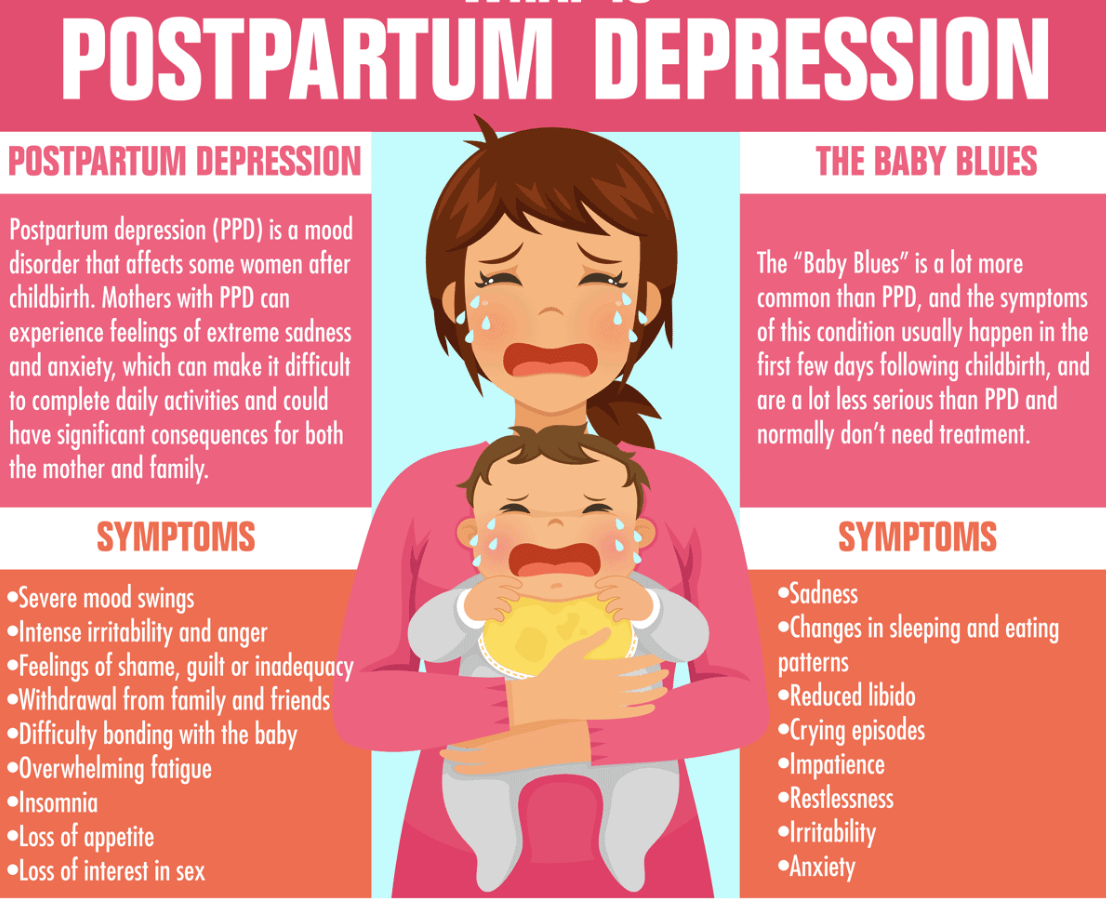 |
| Source credits |
My Encounter with PPD
If I had to sum up what PPD felt like in a sentence, it would be this:
PPD made me cry all the time, constantly feel inadequate about myself as a mother, while feeling wrecked by guilt for not being able to give my baby more.
It’s such a dark period that I don’t ever wanna go back.
How it started
In the hospital
I still remember vividly my first night as a mother. I was lying in my hospital bed awake and crying, and I couldn’t sleep. Not only did my nipples hurt from breastfeeding (they eventually bled the next day), I was also overwhelmed by this inexplicable urge to cry, and I couldn’t stop the tears from flowing. My husband was sleeping on the guest couch in the room, and I cried silently alone for hours until the nurses walked in at 3 am with my baby for the next breastfeeding session, and caught me in the act with red, puffy eyes.
Although I pretended I was crying because my nipples hurt, but really, the biggest reason why I was crying was on the inside.
I was just so overwhelmed. I’ve gone from being pregnant to a mother literally overnight, and I had no clue what to do. What was I supposed to do? How will I know what my baby wants when he cries? I don’t even know how to change his diaper, or bathe him! How am I supposed to keep this tiny, fragile human being alive?
My mother came to visit me, and I couldn’t stop crying either. But when she asked, I simply said my eyes were too dry.
I didn’t know what I was feeling, and I was ashamed to admit it because everyone was just so full of smiles when they came to visit baby Nate. I felt like I ought to be the happiest person in the room, and that I had no right to feel this way.
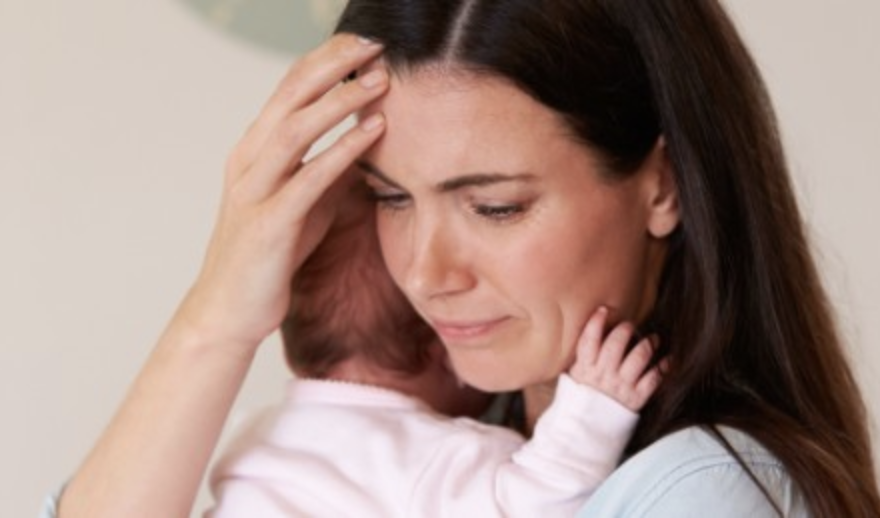
Upon discharge and going home
I was waiting in the lift lobby for my husband to pick us up and bring us home when all of sudden, I was hit by this huge wave of anxiety and started sobbing uncontrollably again. The nurse who was with me got concerned and asked if I was alright, and I remember asking her, how am I supposed to do this? You’re entrusting this little one back to me? But I don’t even know if I can do it! What if I drop him? What if he gets injured because of me? All the what-ifs continued to flood my mind. I was crying so hard that I could barely catch my breath.
We hired a confinement nanny who was waiting for us by the time we got home, but while my baby was in safe hands, I was an emotional wreck. I cried multiple times a day – 7 to 10 times to be exact. Having to constantly breastfeed, pump (to stimulate more milk production) and think of what to eat as milk boosters consumed my entire waking hours, and it made me feel robbed of my own identity.
It was horrid, but I couldn’t figure out why I was crying so much and why I couldn’t stop myself. I would go into the room or shower to cry alone, but sometimes my nanny, my husband or my mother-in-law would walk in and catch me crying. They told me, “don’t cry, it’s bad for your eyes” and that “if you cry, your baby will feel it too especially since you’re latching him now”.
That only made me cry harder because I felt like I was such a bad mom to pass these negativities to my baby.
At this point, I was turning to my safe space to write and release my pent-up feelings. But then I got shamed for it, and by a fellow mom too who said I should just stop whining so much about motherhood. It made me feel worse. It was then that I contemplated killing myself because perhaps my baby would be better off without me. I started thinking about what would be the fastest and most painless way to die and believed that in leaving, I was making way for my baby to get a better and more qualified caregiver.
It was terrible, I know, and I’m ashamed of myself today for having entertained those thoughts then, but let me tell you when you’re experiencing the post-natal blues, nothing feels normal.
It felt like I was going crazy.
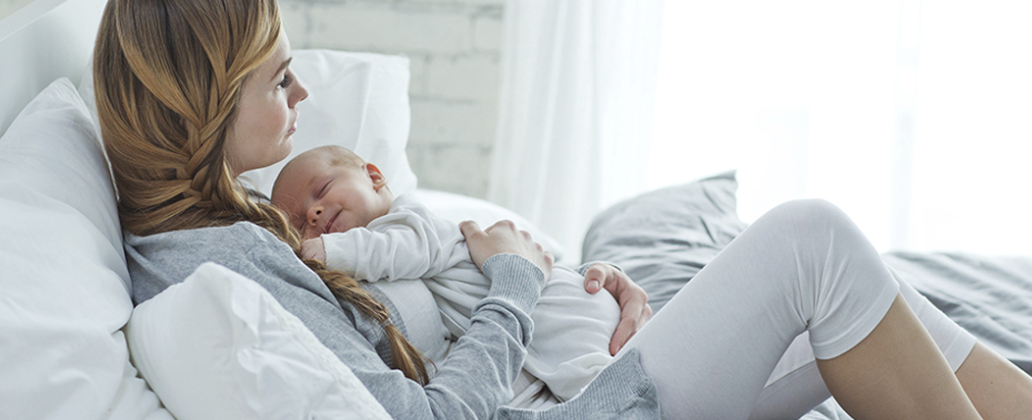
What exactly is PPD?
Postpartum depression is usually preluded by the postnatal blues, which many women experience in the immediate period following childbirth, mostly due to the crash in hormones and the exhaustion from a lack of sleep. But if it drags on beyond a few weeks, or if you feel yourself sinking deeper into the darkness, then you might just have postpartum depression.
Some people describe it as walking through a never-ending fog of guilt, anxiety and feeling useless. Others contemplate suicide. A small minority of new mothers kill themselves over it.
I nearly did, too, especially when I received that comment that I should just “stop whining” and that motherhood is something that all of us just have to go through. It sent me spiralling down another whirlwind of self-doubt and guilt, and it wasn’t pretty.
Many mothers struggle with postpartum depression in silence. Some overcome it, but there are others who succumb to it. And it’s hardly ever talked about because society and social media tell us that mothers are the strongest people in the world. We’re supposed to know everything. We’re supposed to be superwomen.
Except that we’re not.
How I Overcame PPD
1. Acknowledge It
The first step to my recovery was to recognise and acknowledge that I had postpartum depression, which I owe it to my friend (also a fellow mummy) who pointed it out.
She read everything I wrote on my Dayre and told me, Dawn, I think you have postpartum depression. I had that too, and now I’m gonna help you through this.
Knowing that I wasn’t the only one made me feel better, and instead of fighting it, I finally admitted that there was something wrong with me and that I needed help. I felt this huge wave of relief once I did because not having to act strong anymore took a load off my back.
If you’re unsure whether what you have is the case of the (milder) baby blues or (more severe) PPD, you can also take this quiz here to find out.
2. Ask For Help
You don’t have to feel like you have to do everything all the time! When you feel like you can no longer do it anymore, don’t be afraid to ask for help.
And if you need a listening ear, reach out to another mother you know, even if she’s an old friend whom you haven’t spoken to in a while. Most women who have been through this will be more than happy to lend you a listening ear because we know how scary and daunting it feels when you’re a new mom.
If you’re a husband reading this and you suspect your wife may be suffering from PPD too, speak to her in her love language – be it giving her a hug, spending time with her, or even bringing her out.
Remember, asking for help doesn’t make you any less of a mother. In fact, it can even make you a better one!
3. Get Off Social Media If It Gets Too Overwhelming
Many of my readers have reached out to me to tell me that they feel inadequate as a new mom too, especially when they see Instagram posts about other influencers or fellow mummies who seem to make motherhood look so easy and effortless. They have freezers brimming with their breastmilk, their pregnancy weight literally just slid off their bodies after giving birth, and they look absolutely stunning.
I know, because I fell into that trap of comparing myself to them, too. Except that I looked like crap, I was still 15kg heavier than my pre-pregnancy weight, and to make things worse, I could only produce 30ml of breastmilk each time while I watched others going on Youtube and Instagram to talk about how they pump 1 litre of breastmilk a day.
This is easier said than done, but if you want to beat PPD, you need to stop comparing yourself with other mothers.
Stay off social media if you can, or otherwise, unfollow the ones who are making you feel bad about yourself.
4. Join a Mom Support Group
One of the biggest sources of support I got from that time came from my Nov Dayre Mummies group, and a fellow mummy reader-turned-friend called Alessandra.
They were incredibly supportive and never once made me feel like I was a terrible mom for feeling the way I did. Alessandra even shared with me various mantras which I continued to chant to myself whenever I felt the familiar wave of depression coming:
- Baby doesn’t care if milk is from your breast or from the formula. Baby just wants to be fed. (especially if you’re a low-supply mama like me)
- The nights are long but the years are short. (for all the times your baby wakes you up, and all the middle-of-the-night sessions when you’re pumping alone in the dark)
- You’re a new mom, born only on (insert your baby’s birthday here), and you’ll get better with time! (Shared with me by another good mom friend Cherie)
5. Get Medication
We’re so lucky to live in an era where science has discovered and invented pills that can help restore our hormones back to normal, so we don’t have to be at their mercy anymore. If PPD gets too much for you to handle and everything else isn’t working, then consider moving your 6-week gynae visit to an earlier date so that you can get medications to help with your condition.
I didn’t do this because I didn’t want any medications while I was breastfeeding, and I regret not having done so because as a result, it took me more than three months before I successfully overcame PPD.
But hey, here I am today, having walked out of the darkness. So I wanna tell you that things WILL get better and that you will get stronger. Today, I’m enjoying motherhood so much now that it seems so foreign to have been that depressed not too long ago!
So to all you mothers out there who are struggling with the postpartum blues, or to all you low-supply mamas, I want you to know that you’re not alone and that you’re gonna overcome this too.
And that you’re the best mom to your baby.
You’re definitely enough.
With love,
a fellow mama
Budget Babe

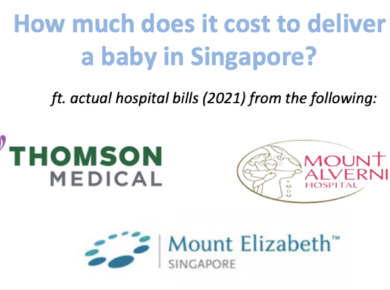

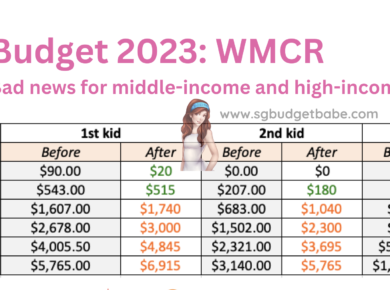
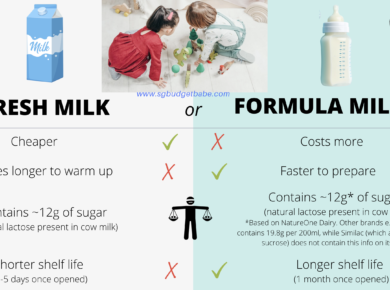
3 comments
Hi there, even now mummies who are pregnant already are suffering from depression.. let alone when the baby is born… am glad you have went through the tough times… it is not an easy journey..
Thanks for all your baby articles!
A strong support group and having help is really super important!
I am currently 1 week post-partum and your article helped me a lot. I will be using those mantras that you shared…thank you so so much!
Comments are closed.